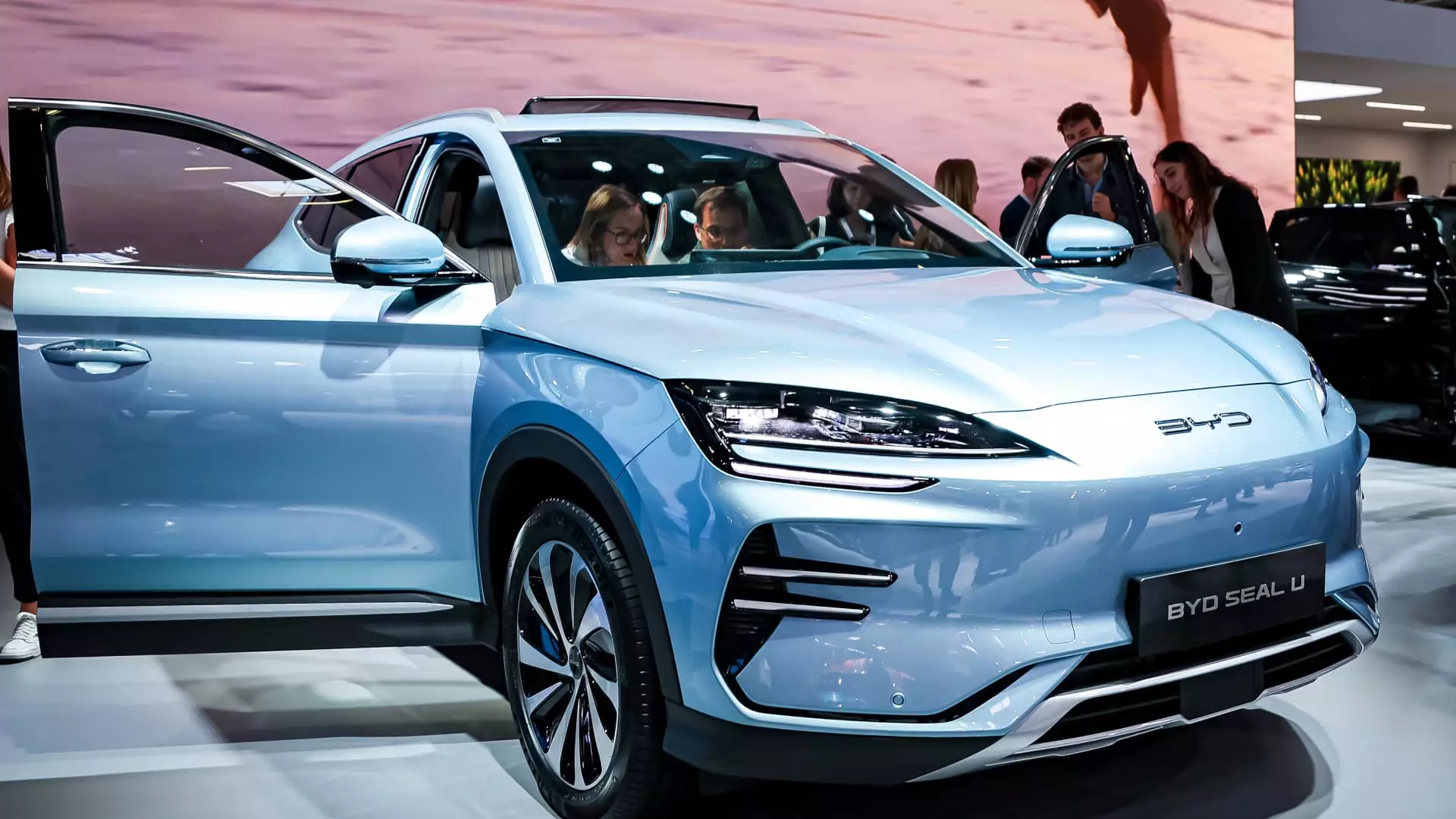In a recent report by Counterpoint Research, Chinese electric vehicle maker BYD is on the path to surpassing Tesla in battery electric vehicle (BEV) sales for the year. The report highlights a significant surge in BEV market share for BYD, showcasing the dynamic nature of the global EV market. This shift is evident as BYD’s second-quarter battery EV sales saw a nearly 21% increase year-on-year, reaching 426,039 units. In contrast, Tesla’s second-quarter deliveries experienced a 4.8% decline to 443,956 vehicles. This data indicates a notable advancement for BYD in the electric vehicle sector.
China’s prominent position in the electric vehicle market is reiterated through BYD’s leading role in BEV sales. The country is projected to maintain over 50% market share of global BEV sales until 2027, with Chinese BEV sales forecasted to surpass the combined sales of North America and Europe by 2030. The European Union’s decision to impose additional tariffs on Chinese EV firms further underscores China’s impact on the market. This move aims to address the perceived threat to the EU industry posed by lower-priced Chinese imports, which could potentially drive Chinese automakers towards emerging markets.
The announcement of additional tariffs on Chinese EV firms by the European Union has significant implications for the industry. Companies like BYD, Geely, and SAIC will face extra duties ranging from 17.4% to 38.1%, on top of the standard 10% duty already imposed on imported EVs. These tariffs are intended to level the playing field for European EV manufacturers, who are facing challenges in competing with lower-priced Chinese imports. The potential impact of these tariffs could lead Chinese automakers to explore opportunities in markets such as the Middle East, Africa, Latin America, Southeast Asia, Australia, and New Zealand.
Despite the obstacles presented by additional tariffs, the growth of electric vehicles and EV batteries is expected to continue. Efforts to enhance cost-efficiency and affordability for EVs and batteries will drive expansion in the market. This growth trajectory indicates a promising future for companies like BYD, which have demonstrated strong performance in BEV sales and production. As the global demand for electric vehicles continues to rise, opportunities for market expansion and innovation will shape the future of the electric vehicle industry.
The rise of BYD in overtaking Tesla in battery electric vehicle sales marks a significant milestone in the evolving landscape of the electric vehicle market. With China’s continued dominance in BEV sales and the impact of EU tariffs on Chinese EV firms, the industry is poised for further growth and transformation. As companies navigate through challenges and embrace opportunities for expansion, the future of electric vehicles holds immense potential for innovation and sustainable development.


Leave a Reply
You must be logged in to post a comment.